Introduction
Yes, dogs can eat potatoes. However, unlike people who use potatoes as staple foods, when it comes to dogs, potatoes are only treats. Dogs are carnivores and need meat-based, complete, and nutritionally balanced foods.
However, adding a potato treat once in a while is perfectly safe. Dogs like versatile menus and will be pleased by the occasional new additions. Plus, potatoes are budget-friendly, easily accessible, and available year-round.
Why are Potatoes Good for Dogs?
Potatoes are rich in carbs and serve as fast energy sources. They are also very tasty, and most dogs find them quite enticing. Let’s take a closer look at the reasons potatoes are good for dogs.
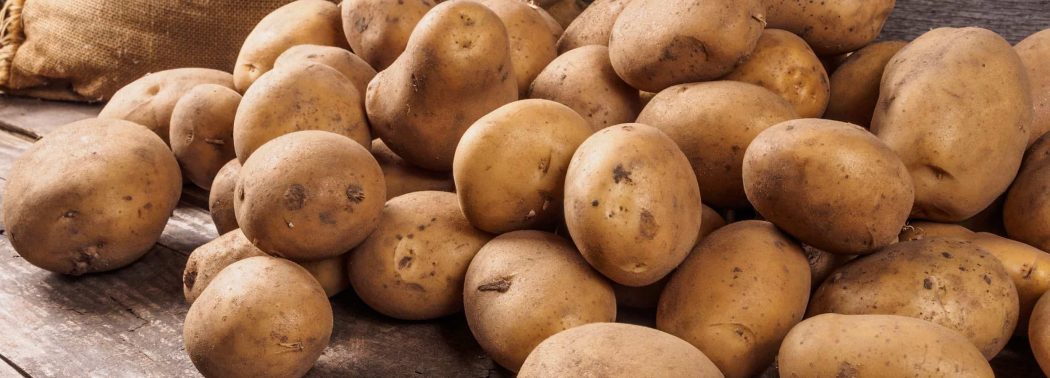
Quick Energy Source
Dogs, especially working and hyperactive pups, need extra energy sources. Potatoes are exactly that – they provide dogs with carbohydrates which are quickly converted into energy.
Rich in Vitamin C
Vitamin C (also known as ascorbic acid) is a versatile nutrient with various health benefits for dogs. In addition to boosting the immune system, it also supports wound healing, tissue renewal, and healthy skin and shiny coats.
Contain Vitamin B6
Vitamin B6 or pyridoxine plays several important roles – it improves the dog’s mood and emotional wellbeing, promotes brain health, prevents clogging of the arteries, decreases the risk of heart disease, supports eye health, and has anti-inflammatory properties helpful for dogs with arthritis.
Iron and Magnesium
Potatoes contain a few minerals, including iron and magnesium. Iron is vital for normal growth and development and transporting oxygen through the body. Magnesium lowers blood pressure, improves sleep, and supports skeletal and muscular health.
Efficient Pill Pockets
Boiled and mashed potatoes can be formed as balls and used as pill pockets. Giving pills to dogs can be a tricky job. Therefore, using some food to sneak the pill in is more than useful.
Can Potatoes Be Bad for Dogs?
Yes, potatoes can be bad for dogs. Like human foods, potatoes must not be overfed – given too often or in large amounts. Plus, potatoes are a high-starch food and can contribute to weight gain.
However, there are several other reasons potatoes should not be used as a staple in the canine diet. Let’s see why potatoes can be bad for dogs.
Solanine Poisoning
As members of the Nightshade vegetable family, potatoes contain a toxic compound called solanine. Luckily, this compound is dangerous only in raw potatoes, and cooking completely deactivates solanine. Solanine poisoning in dogs is an emergency, thus warranting quick veterinary attention.
Rich in Calories
Potatoes contain high amounts of complex carbohydrates and starches. In practical terms, this indicates that overeating potatoes can quickly lead to unnecessary weight gain. Therefore, potatoes should not be offered to dogs with sedentary lifestyles and dogs on weight loss regimes.
Obesity-Related Issues
Obesity is a widespread concern among dogs. However, not a disease on its own, obesity increases the risk of developing conditions like heart problems, diabetes, and certain cancer types. It also aggravates pre-existing conditions like hormonal imbalances and arthritis.
High Glycemic Index
Potatoes have a high glycemic index (GI), meaning they cause sudden blood sugar spikes after consumption. Because of this, potatoes must not be fed to dogs with diabetes.
Canine Dilated Cardiomyopathy
There is a close line between grain-free diets and an increased risk of developing canine dilated cardiomyopathy. However, studies cannot clearly establish whether the increased risk stems from the lack of grains or increased consumption of legumes and potatoes.
How Many Potatoes Can my Dog Eat?
If your dog is not obese and does not have diabetes, you can proceed with reading the feeding guidelines. Luckily, they are quite simple – the medium-sized dog can eat one medium-sized potato.
Larger dogs can be served more – one large potato or three smaller potatoes, while tiny dogs can eat half a medium-sized or one small potato. Anyway, this is the portion size suitable for dogs used to eating potatoes.
If your dog has never eaten potatoes before, you should start with a smaller portion and gradually work your up. For puppies, it is best to avoid potatoes.
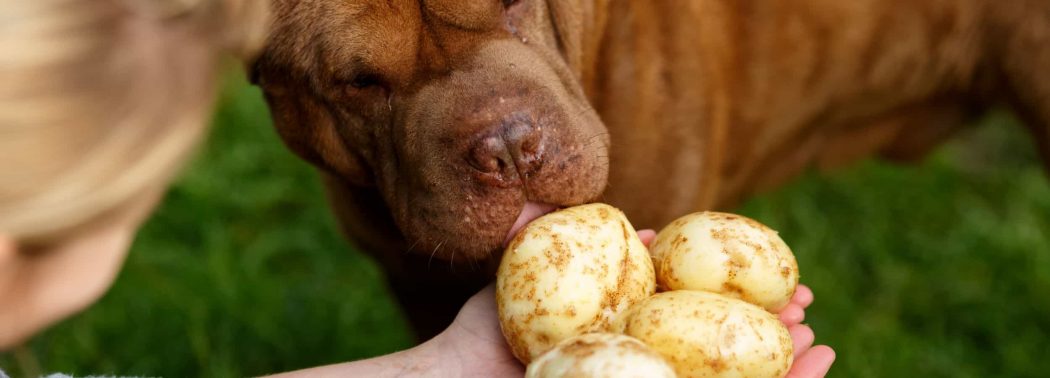
How to Prepare and Serve Potatoes for Your Dog?
Same as always, you need to shop for the right potatoes – ripe and fresh. Pesticide contamination is a lesser risk considering they grow under the ground. However, it is still advisable to buy organic if possible.
Once you have bought the potatoes, you must prepare them properly. Dogs must not eat the peel, meaning you need to carefully remove it. After that, there are two options – boil the potatoes (plain) or bake them in the oven (once again plain). Cooking is vital because, as already mentioned, it deactivates the toxic solanine.
After being thoroughly cooked, you should let the potatoes cool down and serve them to your dog. You can serve them chopped into bite-sized snacks or mashed as a puree. To add more nutrients, you can mix the potatoes with carrots, broccoli, or other dog-friendly vegetables.
Summary
All in all, the final verdict on potatoes is that they are dog-friendly. However, they are not universally fit for all dogs and should be used with caution. Namely, you can offer your dog potatoes if it is healthy, not overweight, and not sick with diabetes.
Even in such cases, you need to be mindful of the serving sizes and frequency. Potatoes can only be used as occasional treats – served in certain situations and in amounts that are less than 10% of the dog’s daily food intake.
Sources
- UC Davis Investigates Link Between Dog Diets and Deadly Heart Disease, Trina Wood, 2018
- Nightshade Poisoning in Dogs, Deborah Lundin, 2021
- Benefits Of Iron In Dogs, Bullyade Pet Supplements, 2021
- What is Magnesium and Why is It Important?, Dr. Jennifer Coates, 2021
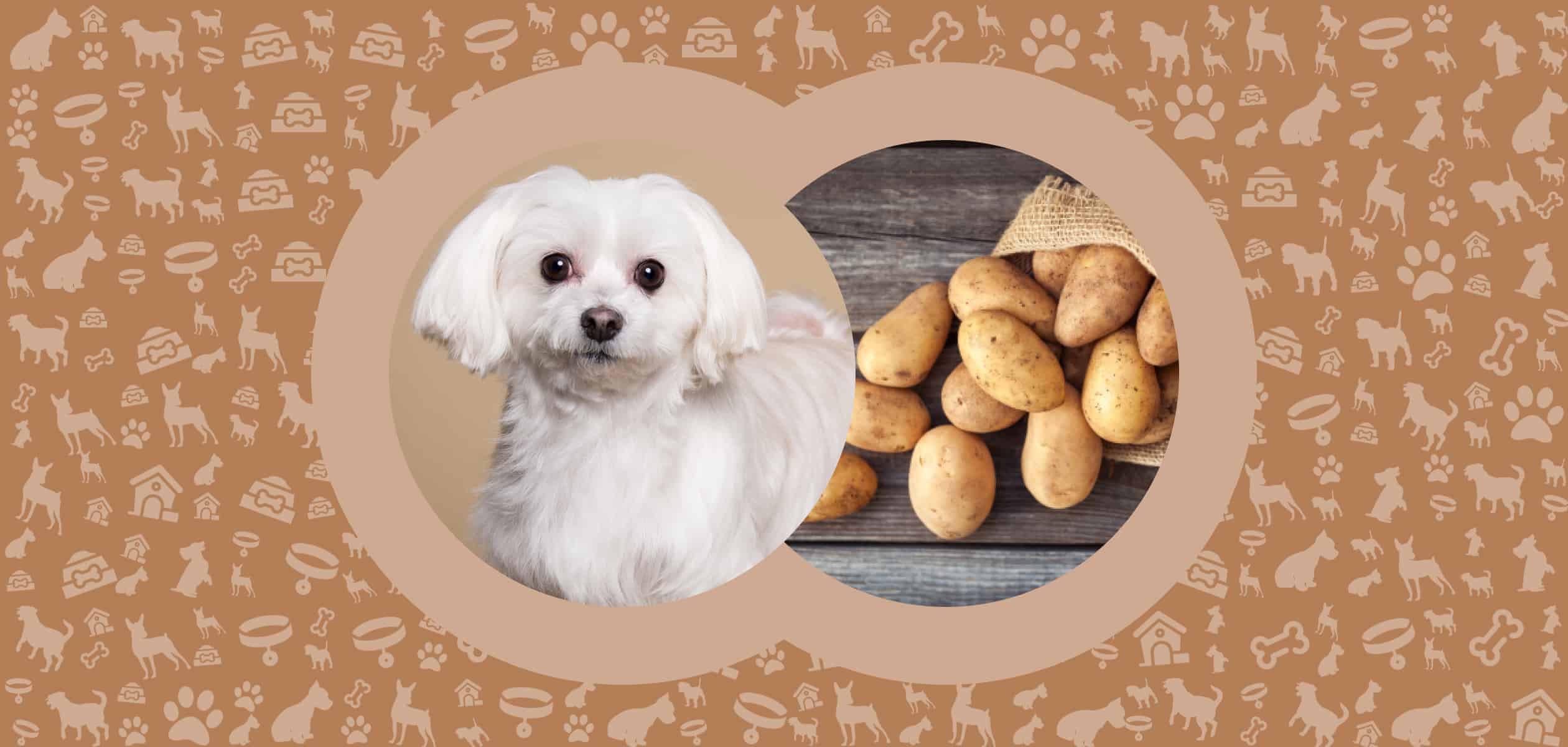
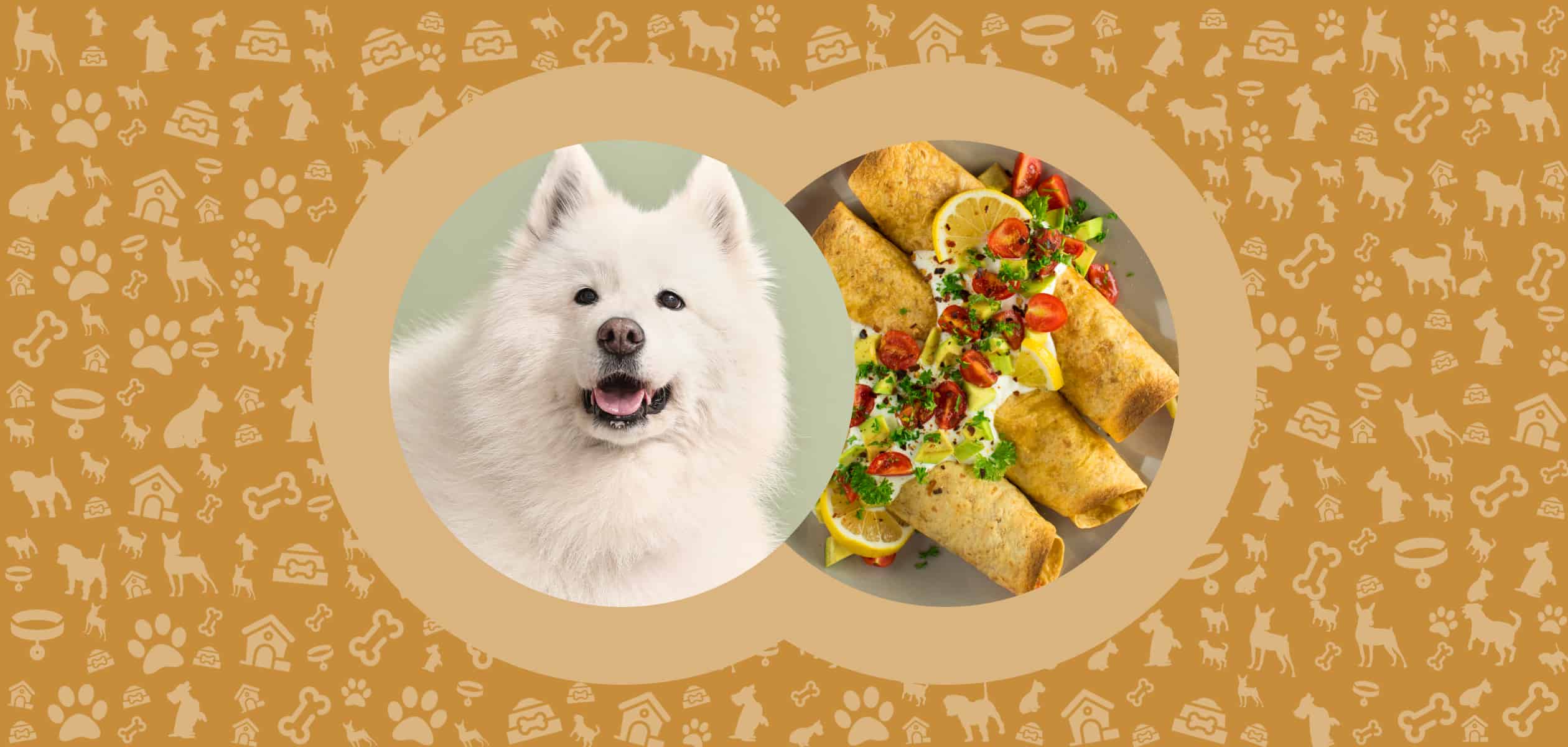
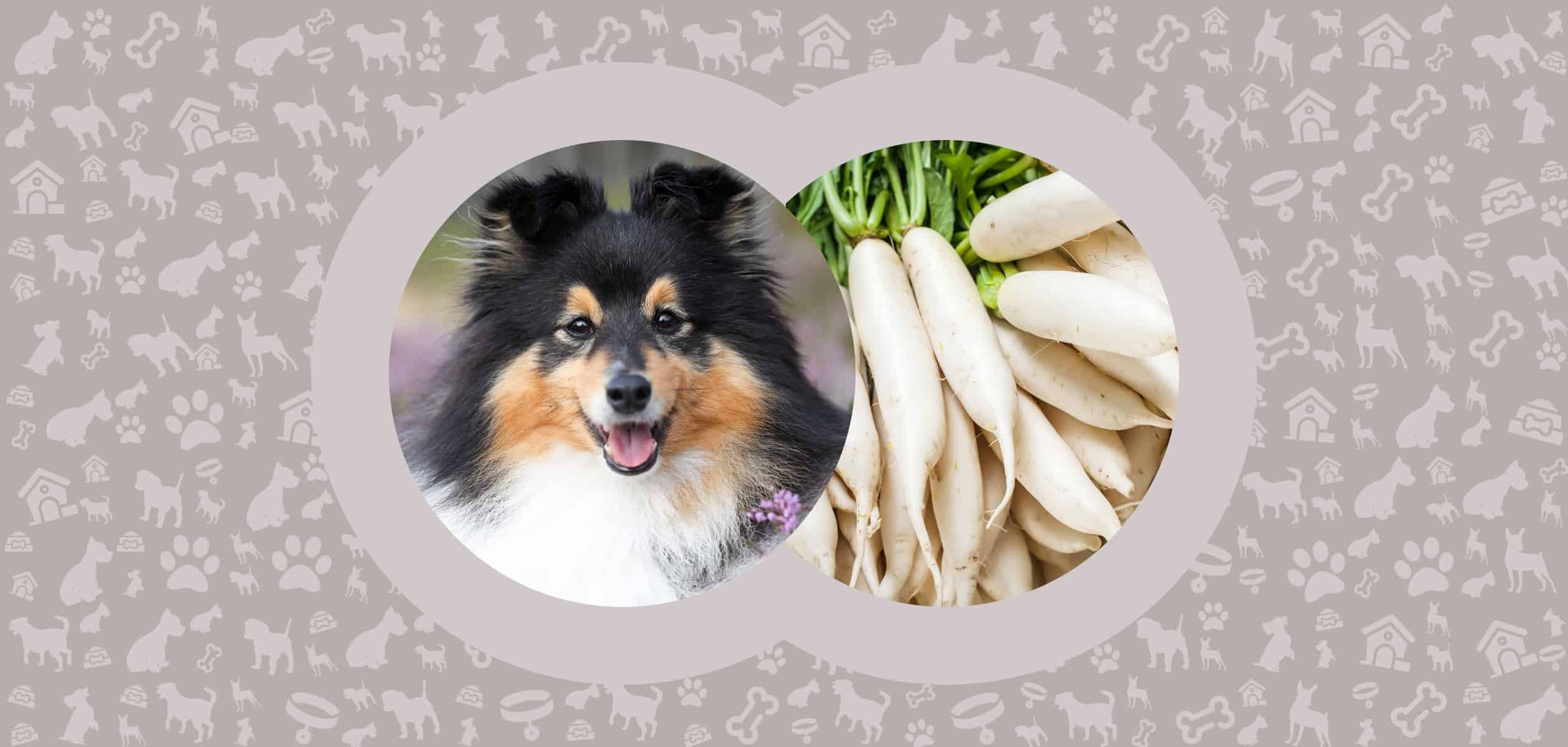
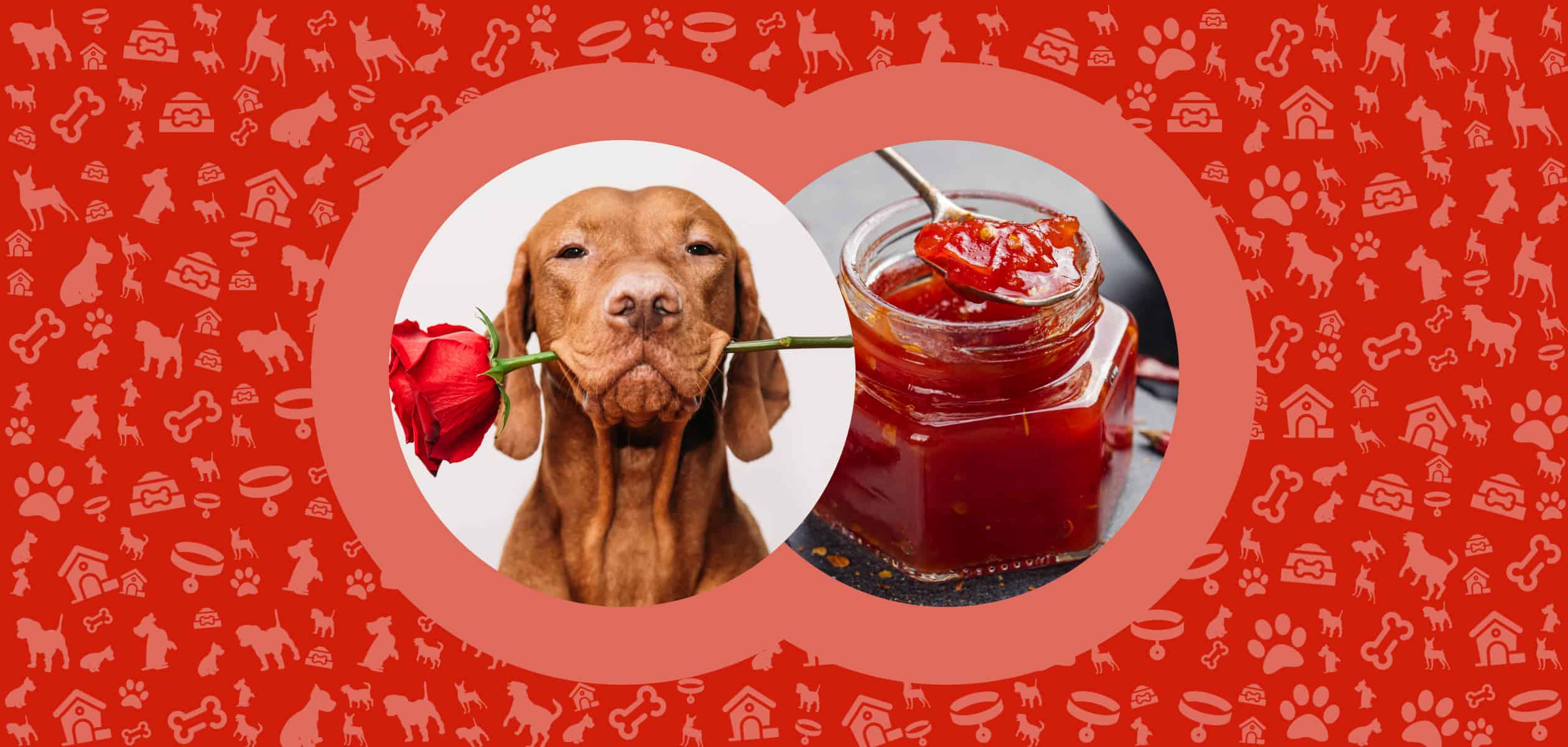
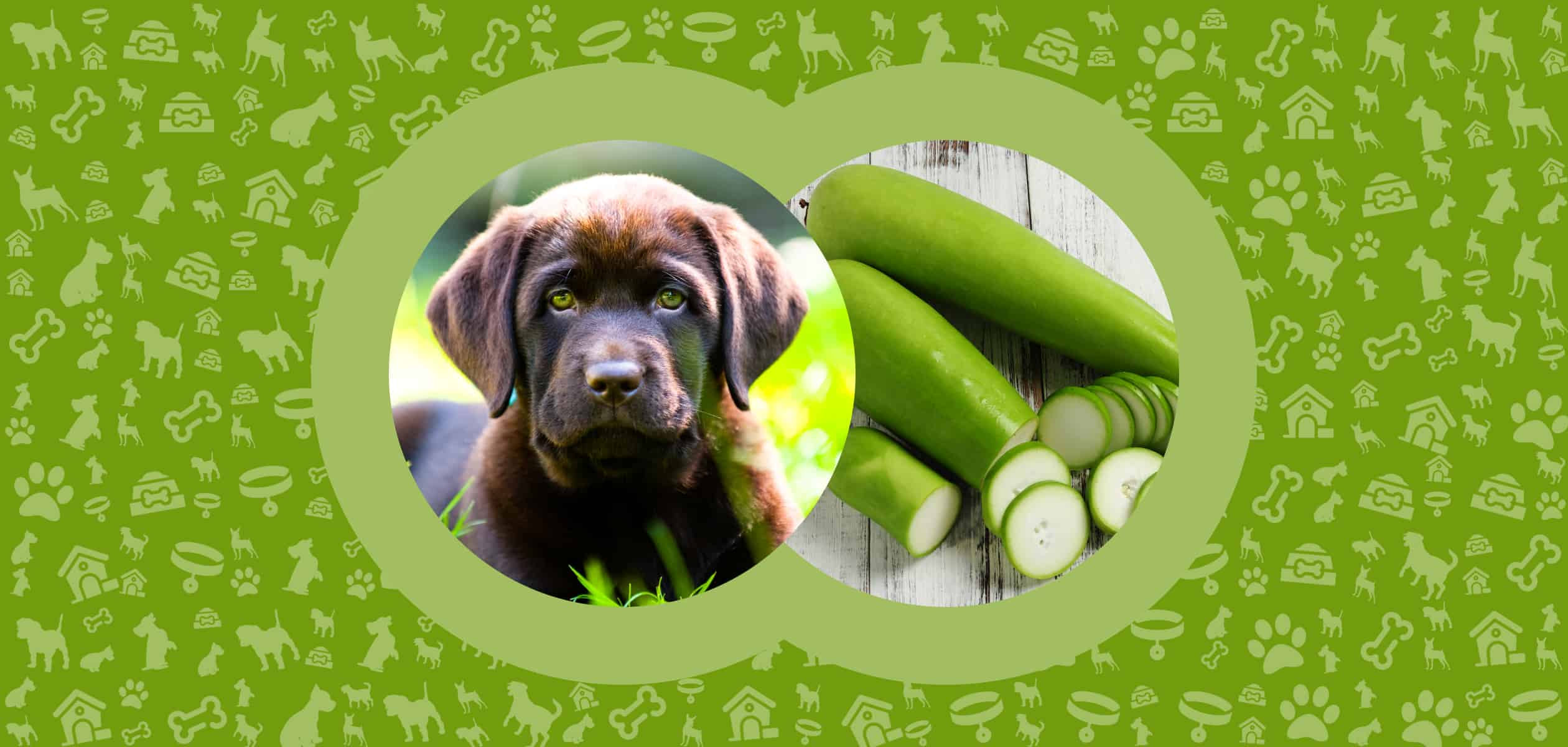
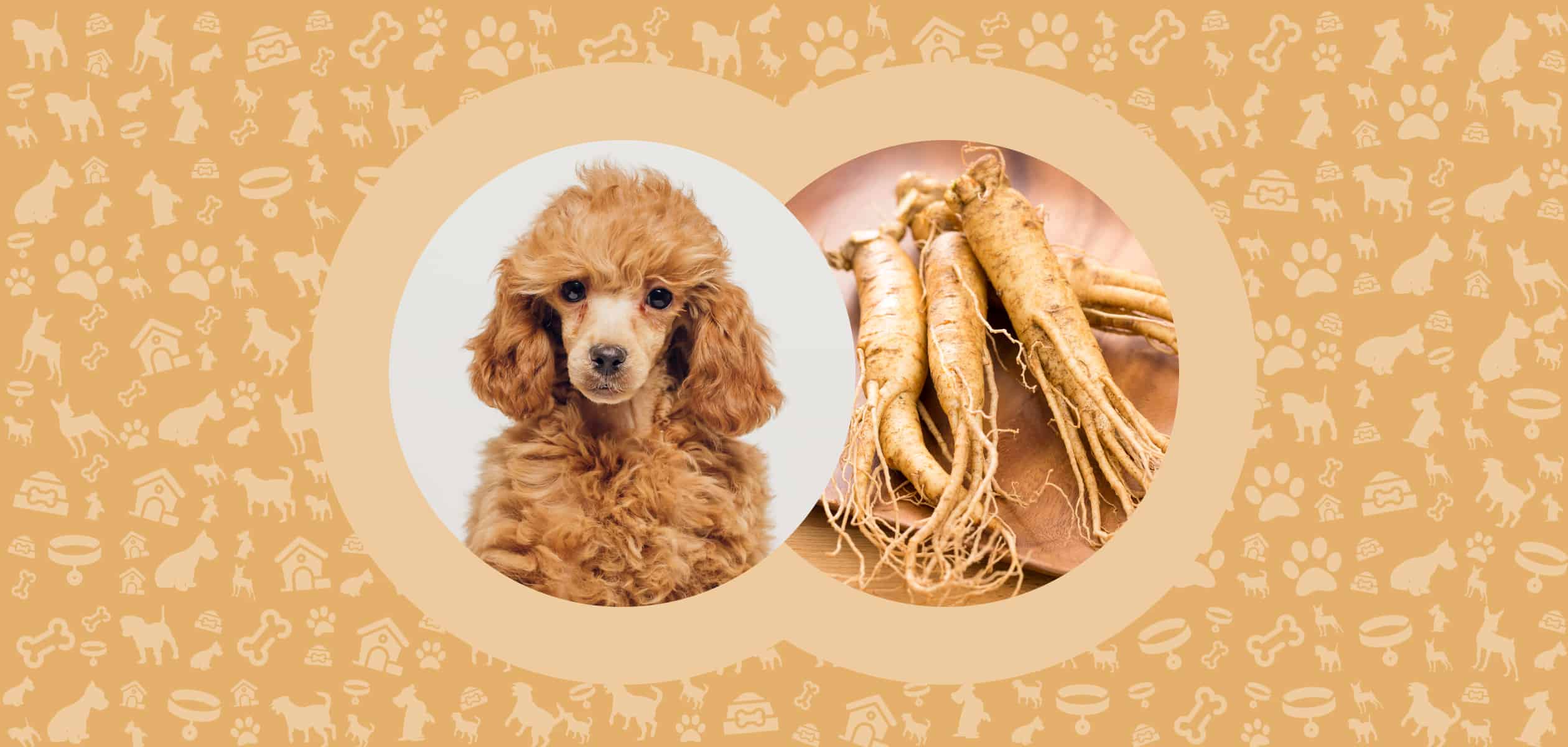
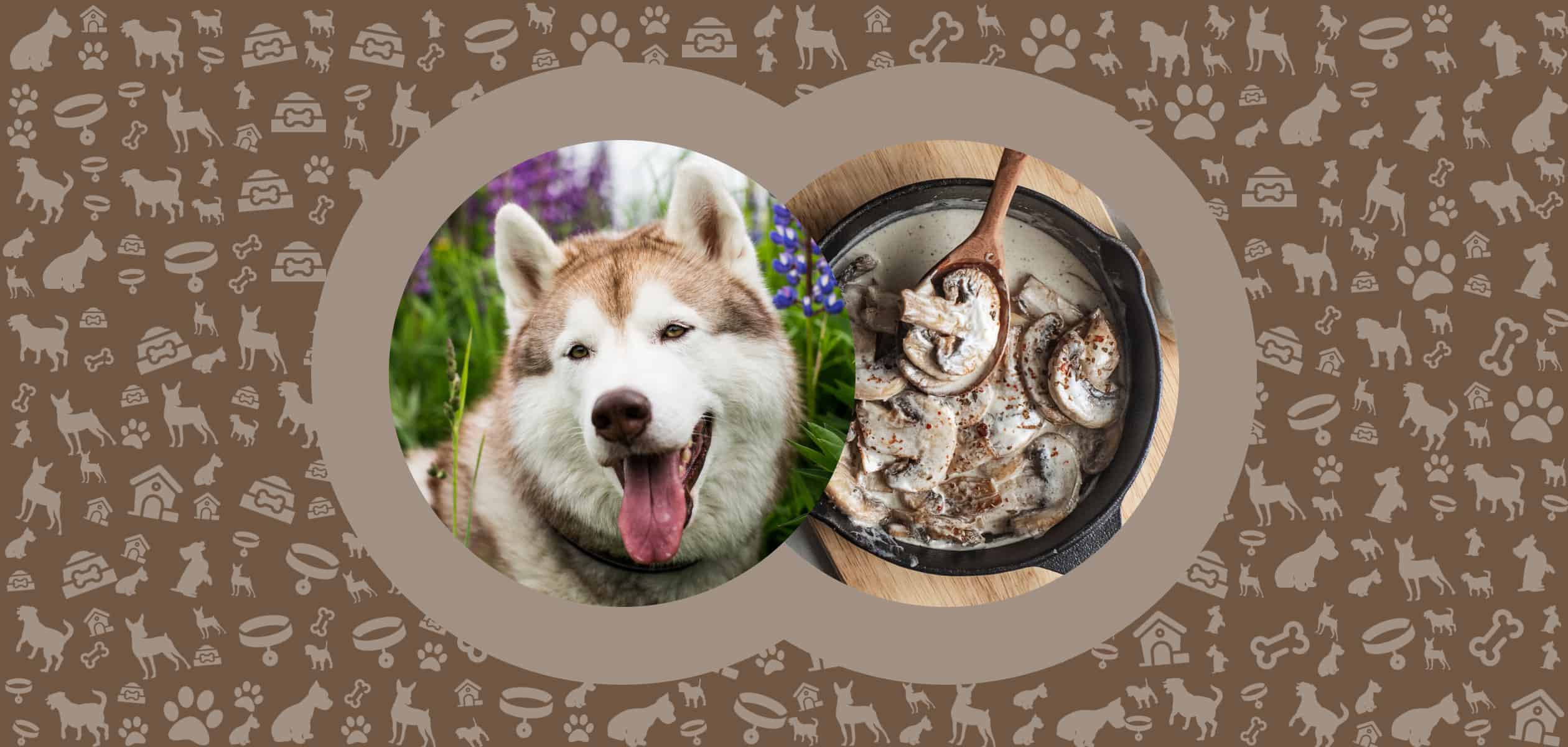
Leave a Comment